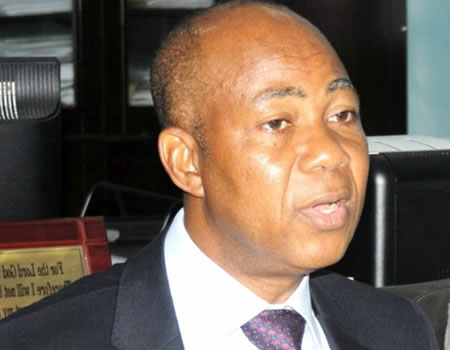Stroke was the single commonest disease that caused death at the University College Hospital (UCH), Ibadan, in 2014 as the hospital spent between N25 million to N30 million yearly on the care of indigent and unknown patients’ brought in unconscious to the hospital.
UCH’s Chief Medical Director, Professor Temitope Alonge, who made the revelation at a media parley at the hospital recently, said that on a daily basis at the emergency department, they attended to at least two to three stroke cases every day.
Alonge said that there was a transition in types of the disease pattern in the country from communicable to non-communicable diseases like stroke, hypertension and diabetes.
He spoke against the general impression that killer diseases are communicable diseases. For instance, he said patients with HIV/AIDS will live full adult life without any problem and they will die naturally.
“But that is not the same case as diabetic patients; they will die before their time because of the complications of diabetes. Diabetes is not a communicable disease.
“Road traffic accident is another example of a non-communicable problem; it kills more people every second and we have an avalanche of all these cases,”Alonge said.
He attributed most of the cases of stroke to hypertension, saying many at times, wrong measurement of blood pressure leaves many people with a sense of wellbeing but in fact they only realise it after they had suffered a stroke.
Alonge declared that vaccines are now available for most non-communicable diseases that unlike before now, were killing people, adding that new vaccines are under development for other infectious diseases such as Lassa fever, including HIV.
“So, we have vaccines for most communicable diseases but we do not have vaccines for trauma, hypertension or stoke. We do not have vaccines for diabetes and cancer,” he said.
The CMD, however, urged for increased philanthropic support for the care of indigent patients at the hospital, adding that Basorun Kola Daisi and his wife give the hospital N500, 000 on quarterly basis for the care of indigent patients.
“The N500, 000 every quarter goes into the Itunu fund and we disburse it every day. We try not to exceed N25, 000 per patient but the number of patients assessing it is growing by the day.
“No amount of money is too small, and such can be paid into the UCH indigent fund account from any bank,” he said.
He named philanthropists Engineer Seyi Makinde and Oloye Jumoke Akinjide, members of staff of the hospital among other people that had supported the care of indigent patients at the hospital.






